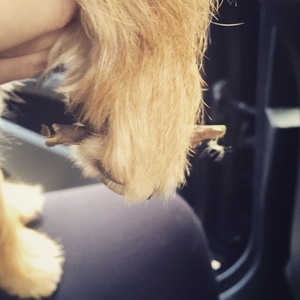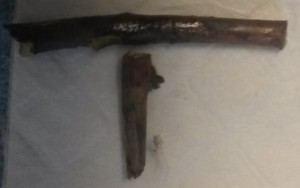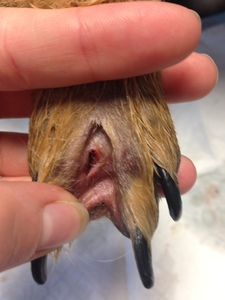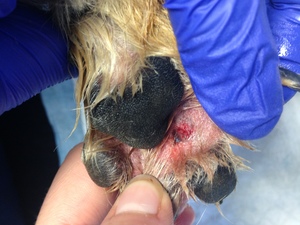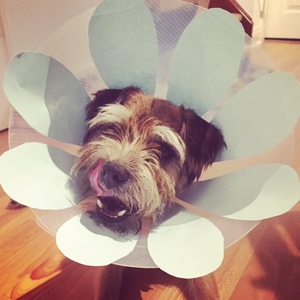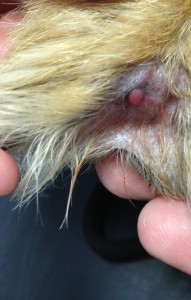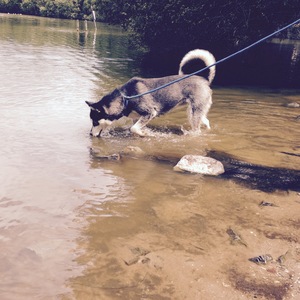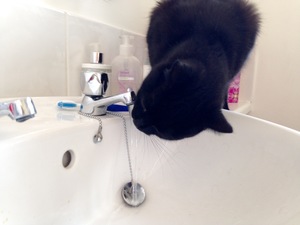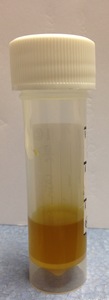 As autumn approaches again it is time to think about how fireworks can have an impact on our pets. They are no longer used just on November 5th, with prolonged displays around bonfire night and celebrations at Christmas and New Year increasingly involving fireworks too.
As autumn approaches again it is time to think about how fireworks can have an impact on our pets. They are no longer used just on November 5th, with prolonged displays around bonfire night and celebrations at Christmas and New Year increasingly involving fireworks too.
Many pets find this time particularly distressing. Dogs and cats can suffer from noise phobia, which means they often display a reaction over and above the normal one to stimuli such as fireworks. The effects can be far reaching as pets can then associate their phobia of fireworks with other loud noises and can become fearful of thunder, gunshots and traffic which can mean this noise phobia becomes a year round problem.
Many owners are unaware of the extent of their pet’s phobia, or believe that there is no treatment. However, there are many simple things that can be done to make pets more relaxed and comfortable at this time. Some animals that suffer from very severe phobias need mood-modifying drugs. However, many can be managed without resorting to drug therapy.
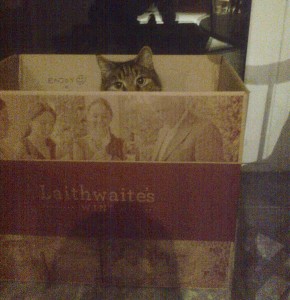 Creating a safe haven for pets is very important. Provide them with a safe quiet place to go, preferably away from windows. Put their toys, food and water there and make sure they can get in and out easily and cover all of the sides except one to make them feel secure.
Creating a safe haven for pets is very important. Provide them with a safe quiet place to go, preferably away from windows. Put their toys, food and water there and make sure they can get in and out easily and cover all of the sides except one to make them feel secure.
Keep all pets indoors in the evenings around firework time and especially on November 5th itself. Do not take dogs for walks whilst fireworks are let off as being outside can be even more distressing and if off the lead, they may bolt. Equally, keeping cats indoors is important not just to avoid them running away but to protect them from misuse of fireworks. It is a good idea to microchip your pet – if they do become lost then it is much easier to reunite a microchipped pet with their owner. If your pet is already microchipped then make sure your contact details are up-to-date with the microchip company.
 Whilst it may seem natural to want to comfort a fearful pet, it is actually counterproductive. By attempting to comfort them we only reinforce their worry that there is something to be concerned about. However hard it is, ignore any worried behaviour that your pet shows. Allowing your pet to go to the ‘haven’ you have created is much better. Playing a game with a non-noise phobic pet can encourage worried pets to be more confident. It is also worth remembering never to punish or scold a fearful pet. New puppies or kittens that have never experienced fireworks before, should at least in theory have no fear and therefore it is very important to act as normal as possible around this time – even if you are a little jumpy yourself! Pets pick up on their owners’ concerns or worries and so the more relaxed you are, the more relaxed this novel experience should be for your pet.
Whilst it may seem natural to want to comfort a fearful pet, it is actually counterproductive. By attempting to comfort them we only reinforce their worry that there is something to be concerned about. However hard it is, ignore any worried behaviour that your pet shows. Allowing your pet to go to the ‘haven’ you have created is much better. Playing a game with a non-noise phobic pet can encourage worried pets to be more confident. It is also worth remembering never to punish or scold a fearful pet. New puppies or kittens that have never experienced fireworks before, should at least in theory have no fear and therefore it is very important to act as normal as possible around this time – even if you are a little jumpy yourself! Pets pick up on their owners’ concerns or worries and so the more relaxed you are, the more relaxed this novel experience should be for your pet.
 The use of pheromone therapy is very successful for various behaviour problems in cat and dogs and is proven to help with noise phobias such as fireworks. For dogs there is a synthetic version of the pheromone that bitches produce for their young pups. It helps relax and reassure worried dogs. For cats there is a synthetic version of facial pheromones that they produce when they rub their heads on objects and that tells them they are safe and secure. Both are plug-in diffusers and are also available in collars (dogs only) and sprays too. Food supplements are also available. These work very well for some pets and are a natural, non-medicated way of encouraging pets to relax.
The use of pheromone therapy is very successful for various behaviour problems in cat and dogs and is proven to help with noise phobias such as fireworks. For dogs there is a synthetic version of the pheromone that bitches produce for their young pups. It helps relax and reassure worried dogs. For cats there is a synthetic version of facial pheromones that they produce when they rub their heads on objects and that tells them they are safe and secure. Both are plug-in diffusers and are also available in collars (dogs only) and sprays too. Food supplements are also available. These work very well for some pets and are a natural, non-medicated way of encouraging pets to relax.
For some pets, medication is needed. The steps mentioned earlier in this article should still be followed because they will create a more relaxed environment for a very fearful pet – but they may need some extra help too. This can take the form of anxiolytic (anti-anxiety) medication which can also erase any memory of events. In the past sedatives have been used to combat noise phobia but this is now known to be unhelpful – a sedated pet is still scared, they are just unable to move around, express normal behaviours or go to their ‘safe haven’ and so lose their ability to cope at all and this can lead to more dangerous fearful behaviours such as biting.
Desensitisation to noises is the longer term solution to this problem which affects so many of our pets. Desensitisation CD’s available for dogs provide a range of sounds (including fireworks, thunder and gunshots) that can be listened to at varying volumes to ensure that dogs become used to them and even start to associate them with positive things such as treats or praise. It is important to use such CD’s in the correct manner and so seeking professional veterinary advice prior to embarking on the program is worthwhile, but the CD can be used at home and will make a real difference to any noise phobic dogs.
For further information or to discuss the best approach for your pet – call us at the surgery.

